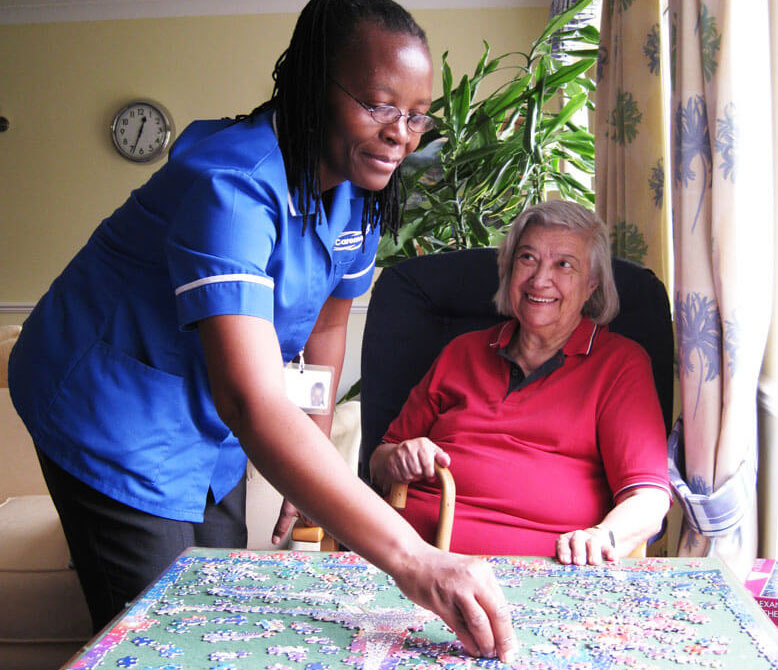Is your loved one living with the stress of a progressive or incurable illness? Then palliative care can help them to achieve the best quality of life. Sometimes known as end of life care, palliative care focuses on your loved one, not their illness.
What is Palliative Care?
Palliative care is a type of specialised care that a patient can receive alongside treatment for a serious and progressive illness. It’s designed to make managing symptoms, like fatigue and depression, easier, ensuring that your loved one is comfortable and supported.
This type of care is based on your family member’s needs, not their prognosis, and a person in need can access it at any time.
Is Palliative Care a Suitable Choice for Your Family Member?
In a survey of palliative care patients, people spoke of their need to stay connected to family and friends and take control of their care. One of the strengths of this type of support is that it recognises the human being as well as the illness.
Accessing palliative care doesn’t mean that your loved one has to give up their primary care. However, if a family member has been diagnosed with a serious illness, it could help to meet their emotional and practical needs in a way that your family member is free to define. For example, in addition to their treatment, they can access a range of care, including pain relief, counselling and spiritual comfort.
Palliative Care and Hospice Care
It’s not uncommon for people to confuse palliative care and hospice care. However, hospice care focuses on quality of life and end of life care, usually over the final six months of your loved one’s life. In addition, all treatment for your family member’s illness will end. With palliative care, treatment and care options are delivered concurrently.
What Can You Expect from Palliative Care?
Your loved one can access care at any stage of their illness. Starting earlier rather than later could help deal with the stresses and anxieties of diagnosis and treatment. Palliative care can support your loved one to understand their disease and clarify their options for treatment. It can also help to relieve any distress and cope better with their illness.
In short, palliative care’s aim is to help your loved one carry on with their daily life. In doing so, they’ll experience improved quality of life and receive additional support when undergoing treatment. As a result, family caregivers will also develop greater resilience knowing that their loved one is getting what they need.
When is Palliative Care Appropriate?
According to the World Health Organisation, the need for palliative care worldwide is growing as an increasing number of us seek a dignified death free of excess pain.
Once reserved only for people living with a terminal disease, the remit for palliative care has broadened over the years. People living with heart disease, Alzheimer’s and dementia, cancer, MS, ALS, and other serious illnesses can now benefit from it.
In fact, the range of services available through this kind of care could be useful to any older person living with discomfort and disability.
What are the Benefits of Palliative Care?
Relieves Suffering and Stress
The primary benefit of palliative care is to improve a loved one’s quality of life and help them cope with the stress and suffering of a serious illness. However, studies show that it could also help your loved one live a longer and more fulfilled life.
Treatment Decisions Match Goals
The palliative care team will also help your family member match their treatment choices to their wishes for overall care. They’ll liaise closely with the primary care team, ensuring that your loved one has more control over their treatment and is looked after with dignity.
Puts The Patient First
Palliative care is person-centred, not disease centred. The result is that your loved one will feel more in control of their care. They’ll be less likely to suffer from depression and more able to avoid the risks associated with hospitalisation and treatment. By integrating psychological, spiritual and physical aspects of treatment, your loved one will receive holistic care.
Supports Loved Ones and Their Family
If your family member needs palliative care, we’ll ensure that family and friends are part of the process as our healthcare teams work seamlessly to deliver a coordinated service where your loved one is always the first priority. We’ll support you throughout the end of life care process as we help your loved one enjoy each day to the fullest.
Caremark: Delivering High-Quality Palliative Care
Seeing a loved one living with a long-term or terminal illness can be difficult. With palliative care from Caremark, your family member will be supported in their own home, receiving the best care for an enhanced quality of life. To find out more about our extensive range of care services and book your free consultation, contact us today.

